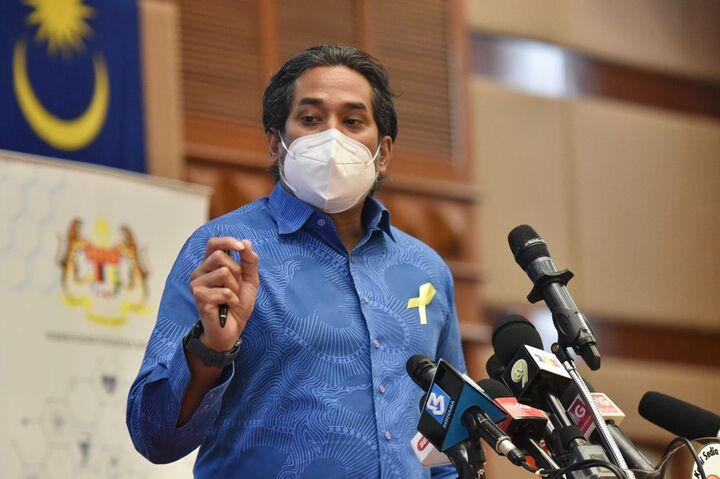KUALA LUMPUR, Oct 15 — Khairy Jamaluddin today called for health budgets to be viewed as investments, rather than expenditures, to cut rising mortality and incidence rates of chronic diseases, particularly cancer.
The health minister said investments can be channelled into early detection and novel treatment to reduce the burden of cancer disease on the health care system that was exacerbated by Covid-19.
Citing the Ministry of Health’s National Cancer Registry Report 2012–2016 released last year, he said almost 70 per cent of all cancer cases were diagnosed late at Stages Three and Four, resulting in fewer options for treatment and poorer survival rates.
Approximately 49,000 people in Malaysia were estimated to be newly diagnosed with cancer in 2020, and this is expected to rise to more than 66,000 new cases annually by 2030.
“People who are healthier and able to survive cancer, can carry on working to help rebuild their lives, the economy, and the country.
“Effective investments and interventions in cancer prevention, timely diagnosis, advances in therapies and care delivery models which have reduced the number of cancer deaths, improved survivorship, and quality of life for those living with the disease, need serious consideration,” Khairy said at the launch of the Galen Centre for Health and Social Policy’s “Improving Access To Cancer Treatment And Care” virtual conference and the “Cancer Care: Challenges, Gaps And Opportunities In Malaysia” White Paper.
He said while Covid-19 has caused massive disruptions and harm to Malaysia’s health care system, the epidemic also provided an opportunity to examine and consider existing gaps, weaknesses, and strengths of the country’s health infrastructure.
Khairy said steps had been taken in recent years to encourage early detection of cancer using a self-testing kit for human papillomavirus (HPV), as well as removing barriers for women to screen and detect cervical cancer in its early stages and get treatment as early as possible.
The Ministry of Health (MOH) also introduced immunochemical faecal occult blood tests as part of colorectal cancer screening, targeting those aged 50 to 75. Colorectal cancer is the second most common cancer among Malaysians, where 65 per cent of cases are diagnosed late.
However, he pointed out that many continue to seek traditional or alternative treatments upon learning their diagnosis, rather than immediately going for conventional medicine, which results in significant treatment delays, and in some cases, allows the disease to progress to a later stage.
“For decades, the most effective medicines have been almost fully subsidised by the government to ensure the best possible health outcomes. Novel treatments are still accessible to patients through innovative financing models, patient access schemes, and industry-sponsored clinical trials.
“The challenge for us, at the MOH, is not to find the ‘No’ to any of these questions or treatments but to ensure that whatever decision that is made is in the best interest of patients and the provision of quality care, and that no one is left behind,” Khairy said.
He said neither the MOH nor the government can respond adequately to the threat of cancer on its own and called for synergistic efforts involving private health care stakeholders, civil societies, academia, caregivers, and patients.
“Ownership of the cancer issue must go beyond health but also into other sectors such as labour, finance, urban planning and education.”








